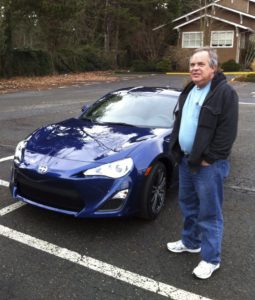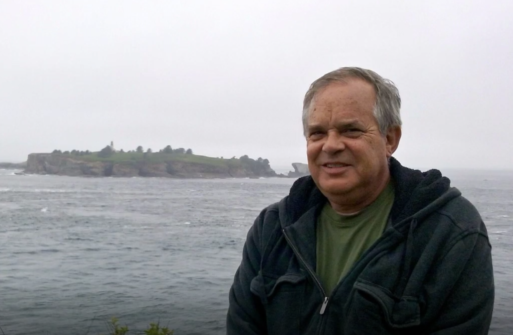Alan Naiman was a rare bird.
After a career in banking, Naiman spent the last 20 years of his life working for the Washington Department of Social and Health Services, where he earned an annual salary of just over $67,000 — a fairly modest salary for someone living in the Seattle area Naiman called home. Though he never married or had children, he dedicated his life to helping others in ways that were plainly obvious to those around him, namely by fostering children and caring for his disabled brother, Daniel. But Alan Naiman, as admirably as he lived, had a purpose in life that almost no one ever suspected.
Naiman was known to live frugally. He bought his jeans at Costco, his favorite t-shirts at grocery stores, and only ate at inexpensive, fast-food restaurants. He drove beater cars and rarely indulged himself, patched his shoes with duct tape, and according to lifelong friend Shashi Karan, often worked multiple jobs and invested his money wisely.
To those that knew him, his frugality was just a part of his personality. After Naiman’s death in 2018, Karan told CNN, “He was just that kind of guy that he couldn’t just spend the money. It was just in his nature to save the money and put it aside.” But what most didn’t know was that, as a result of his frugality and a large inheritance from his father, over the years Naiman had amassed an impressive $11 million fortune. And he had plans for every penny of it.
Alan’s Story: Loss Begets Giving

Credit: Shashi Karan
After losing his brother in 2013 and being diagnosed with cancer himself, friends say Naiman shifted his energy to giving — working to make sure the savings he’d accrued went to charities for the less fortunate in our society, especially children. He also notably splurged on himself — buying an affordable Scion sports car when he could have easily afforded a Porsche or an Aston Martin.
One group, The Pediatric Interim Care Center, a charity that helps newborns exposed to drugs in the womb get weaned from chemical dependence, first came in contact with Naiman when they received a $10,000 online donation and believed it to be an error. When they contacted Naiman to be sure he hadn’t mistakenly added too many zeros to his donation amount, they learned it was no mistake, and there would be more to come. Naiman ultimately donated $2.5 million to the organization — its largest donation ever. You can see the group’s tribute to his generosity here.
This is just one example of a charity that benefited from Naiman’s selfless generosity — a generosity that ultimately netted local Seattle-area charities $11 million in donations when all was said and done. While most of Naiman’s donations were to children’s charities, he also donated to other groups like Disabled American Veterans and his parents’ church.
While Naiman’s frugality and charity are extraordinary, his sense of duty to the less fortunate in society should not be. Our communities are important to each of us, often times more important than we realize. It’s easy to get caught up with our busy lives, trying to achieve comfort and security for ourselves and the ones we love. But we’d all do well to take a page from Alan Naiman’s book.
You don’t have to give $11 million to make a difference in your community. Even a few volunteer hours a week can make a big difference for those in need, and the rewards for this kind of work cannot be quantified, either for ourselves or for others.

 The Generosity of Alan Naiman
The Generosity of Alan Naiman





 Composting Bodies Is Now Legal in a Dozen States
Composting Bodies Is Now Legal in a Dozen States














